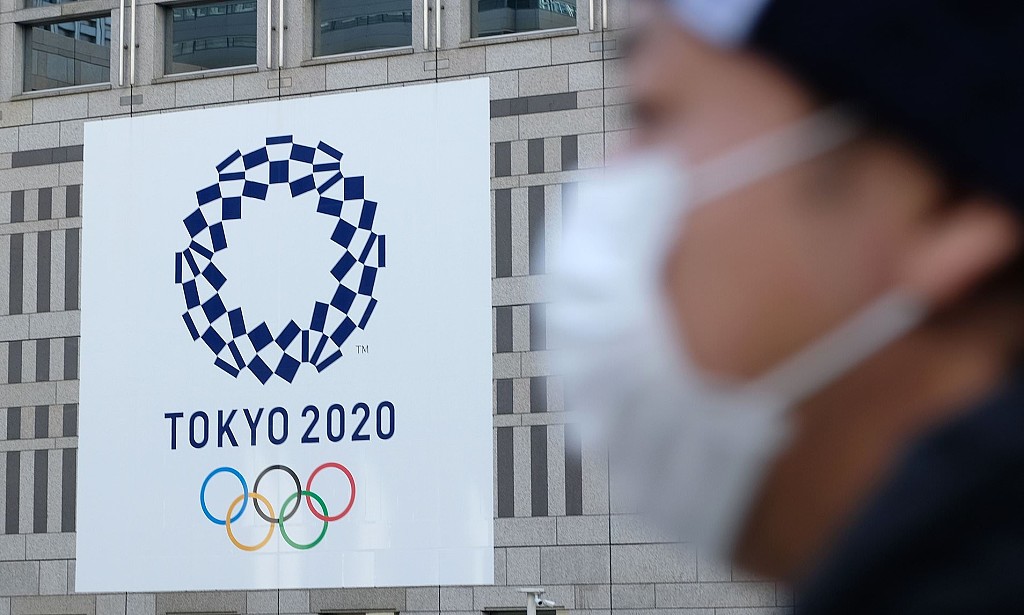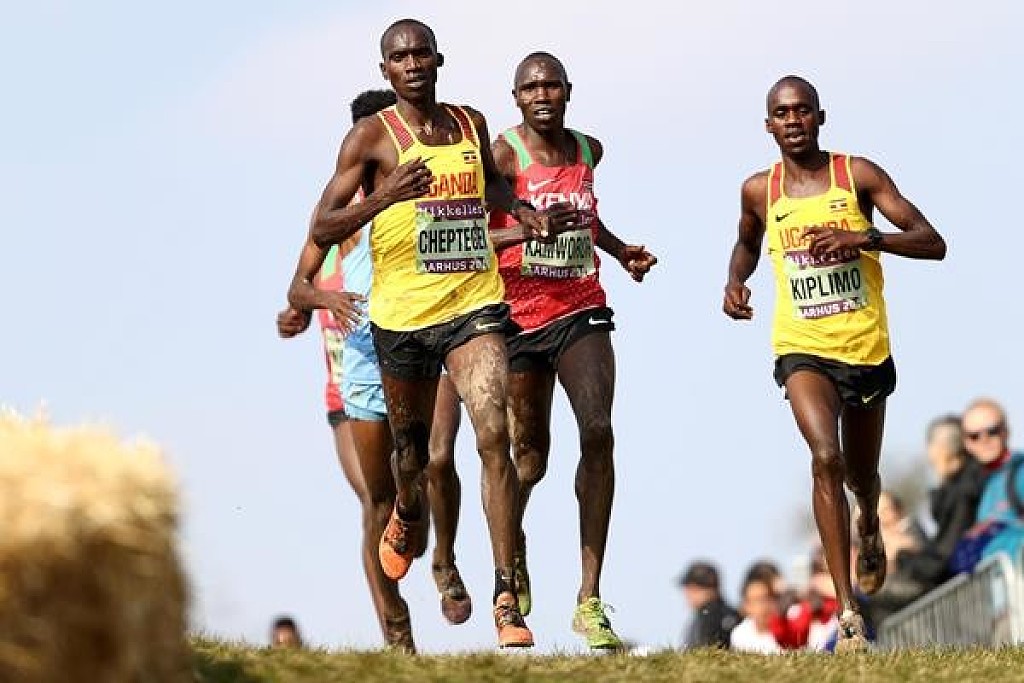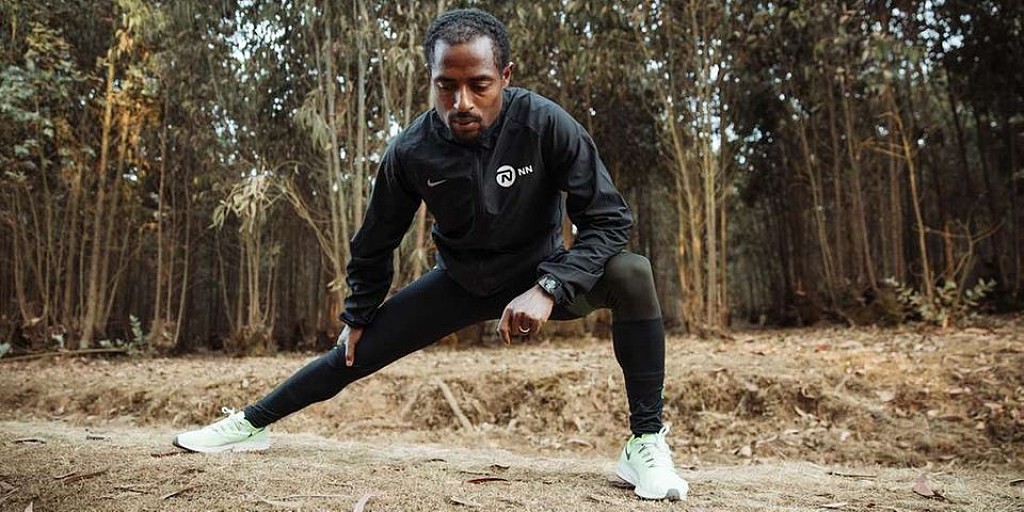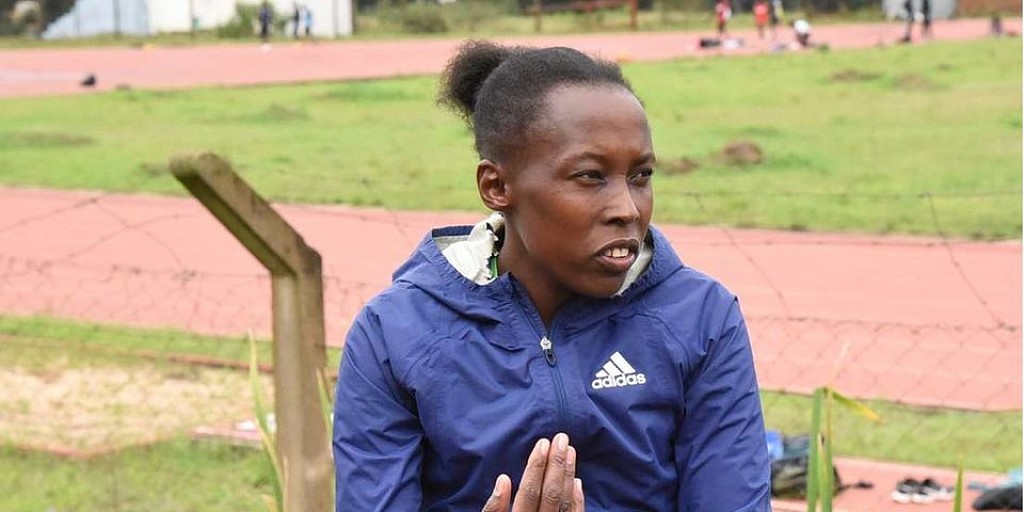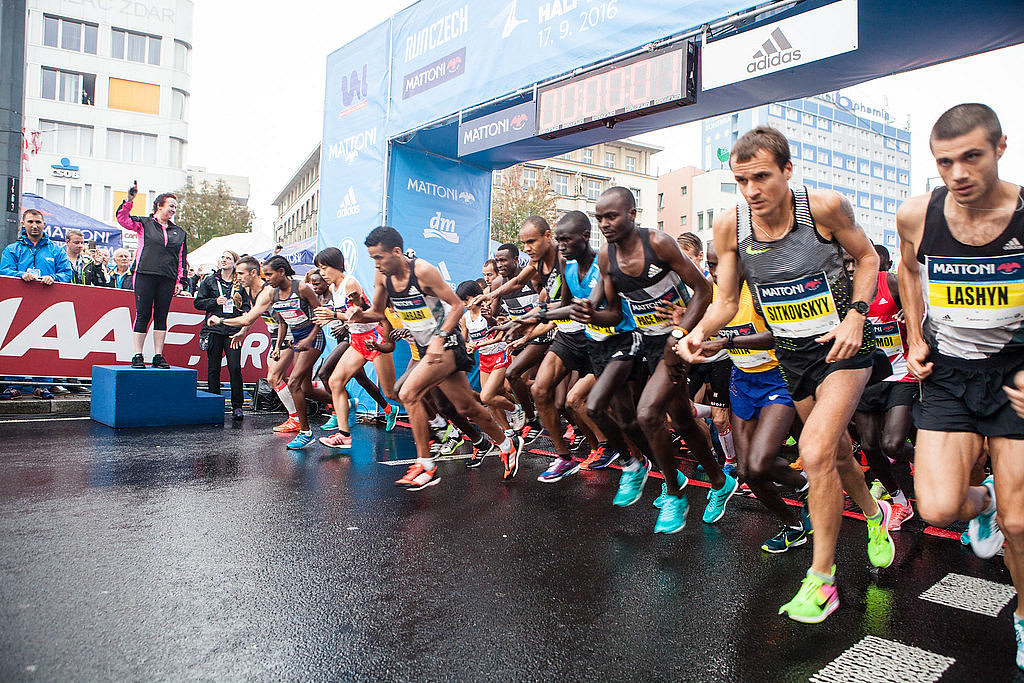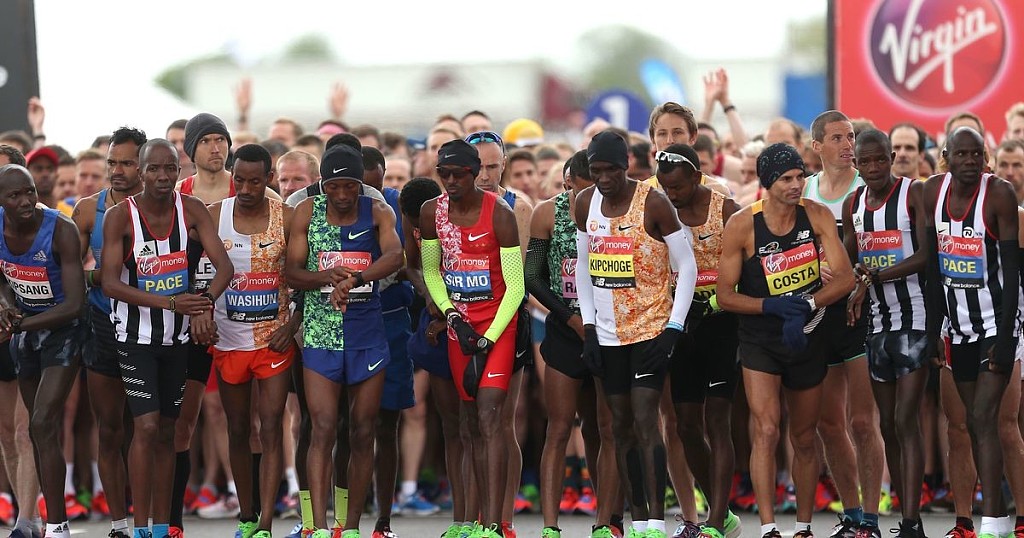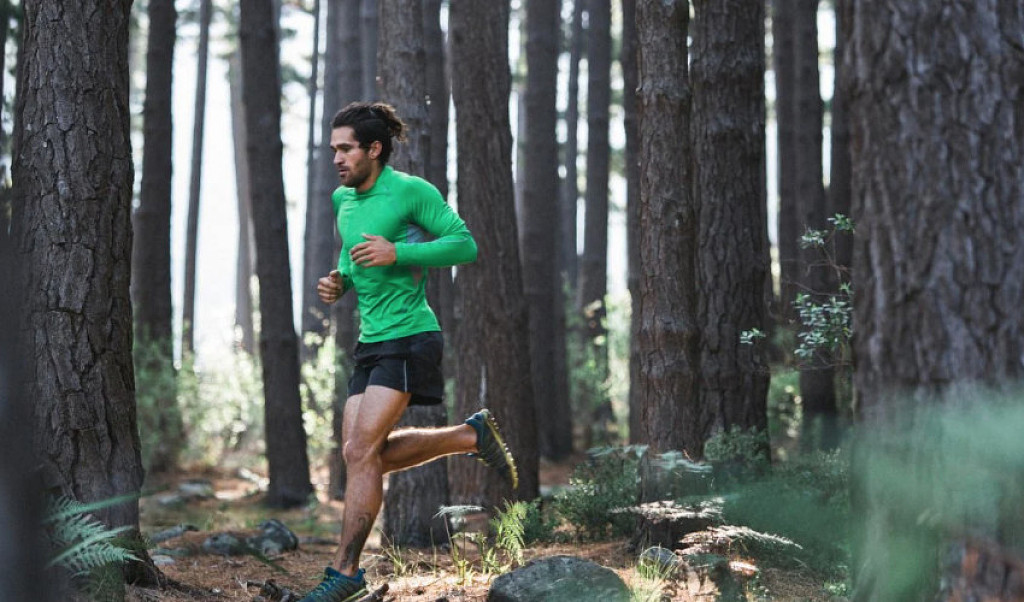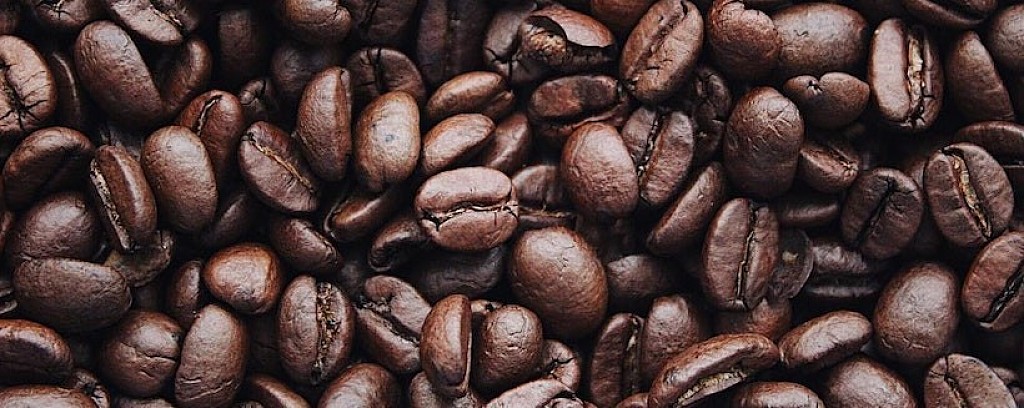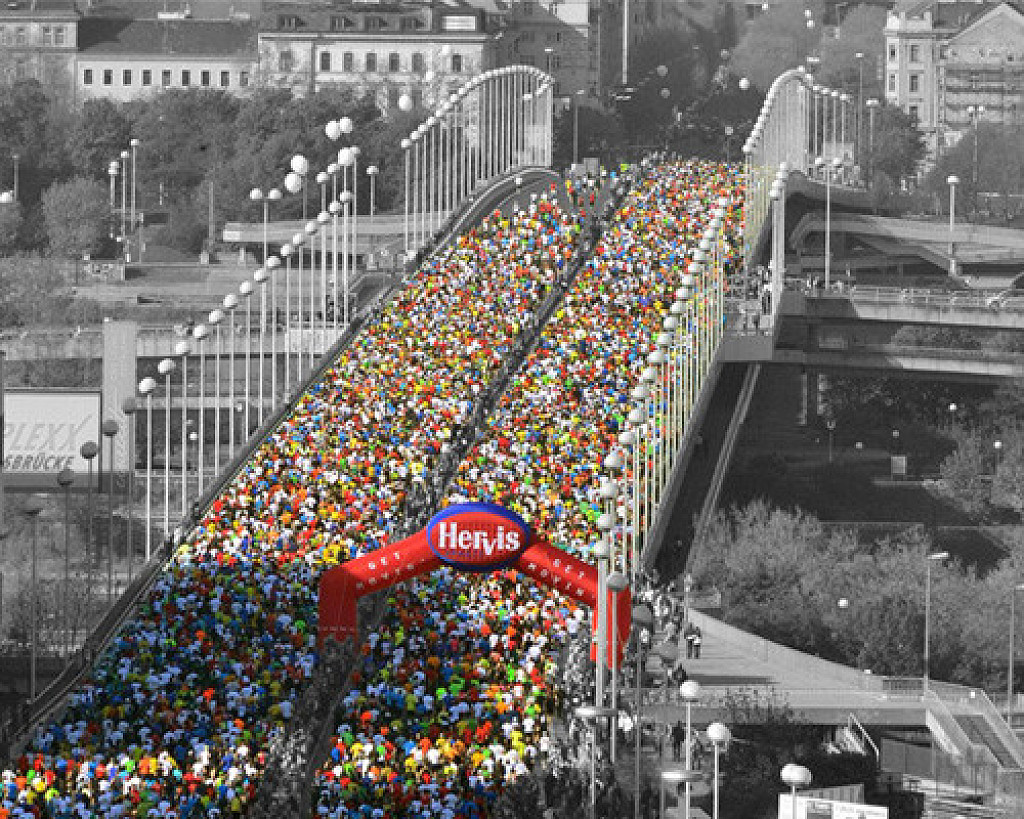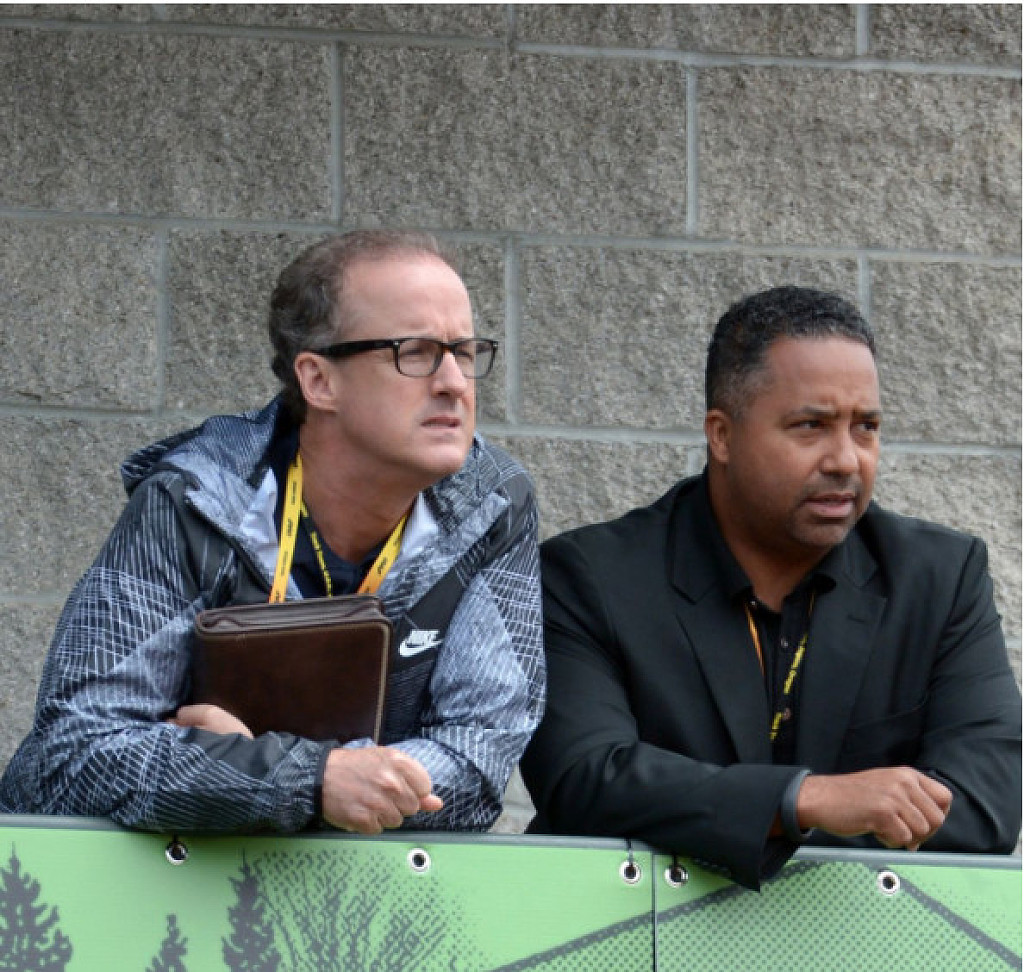Running News Daily
Top Ten Stories of the Week
9/26/2020
These are the top ten stories based on views over the last week.
Tokyo 2020 organizers are planning to test all foreign athletes for COVID-19 when they arrive in Japan for the Olympic Games
Tokyo 2020 organizers are planning to test all foreign athletes for COVID-19 when they arrive in Japan for the delayed Olympic Games, it was announced in draft measures on Wednesday.
Non-Japanese athletes should have tests within 72 hours before departure for Japan in their own country or region and will be tested again upon their arrival in Japan, according to the measures released after a joint meeting by Tokyo 2020, the Japanese government and the Tokyo metropolitan government.

From early July 2021, all athletes, including Japanese participants living in Japan, will be tested before entering the pre-Games training camp, the Olympic Village and competition venues.
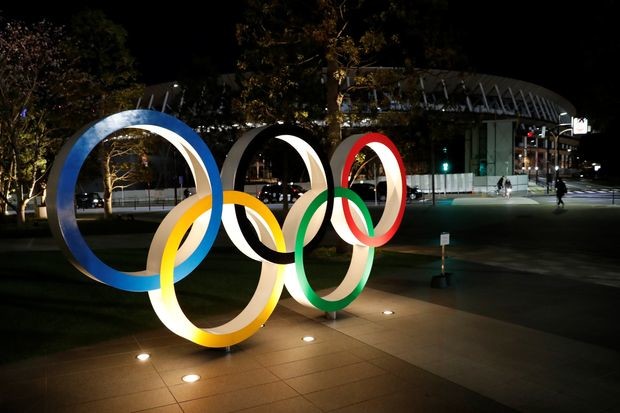
Those expected to have physical contact with athletes will also have tests during the athletes' stay, the draft measures said.
The planned measures revealed that athletes will be advised not to take public transportation and to avoid contact with local citizens.
Toshiro Muto, the CEO of the Tokyo 2020, admitted that it will be difficult to ban athletes from shopping or sightseeing in Japan.
"By contacting the public, the athletes might spread COVID-19," he said. "That is the possibility. We must protect the citizens. So there are two aspects... It should be difficult. It is not realistic for us to consider not using public transportation by athletes."
Muto said that they have not reached any conclusion on any of the countermeasures and will "continue the discussion."
(09/23/20) Views: 333Joshua Cheptegei and Jacob Kiplimo lead Ugandan team for World Athletics Half Marathon Championships Gdynia 2020
World 10,000m champion Joshua Cheptegei and world 3000m leader Jacob Kiplimo are among the athletes selected to represent Uganda at the World Athletics Half Marathon Championships Gdynia 2020 on 17 October.
Cheptegei, the world cross-country champion, broke the world 5000m record at the Wanda Diamond League meeting in Monaco last month with 12:35.36 and is targeting a tilt on the 10,000m mark on 7 October before heading to Poland.

Kiplimo, meanwhile, won the 5000m at the World Athletics Continental Tour meeting in Ostrava with a PB of 12:48.63 and then went on to triumph over 3000m at the Wanda Diamond League meeting in Rome in a world-leading 7:26.64, breaking the Ugandan record and becoming the fastest teenager in history for the distance.
Given their exploits on the track in recent months, Cheptegei and Kiplimo will be among the medal favourites when they take to the startline in Gdynia – despite the fact that both men will be making their half marathon debut.
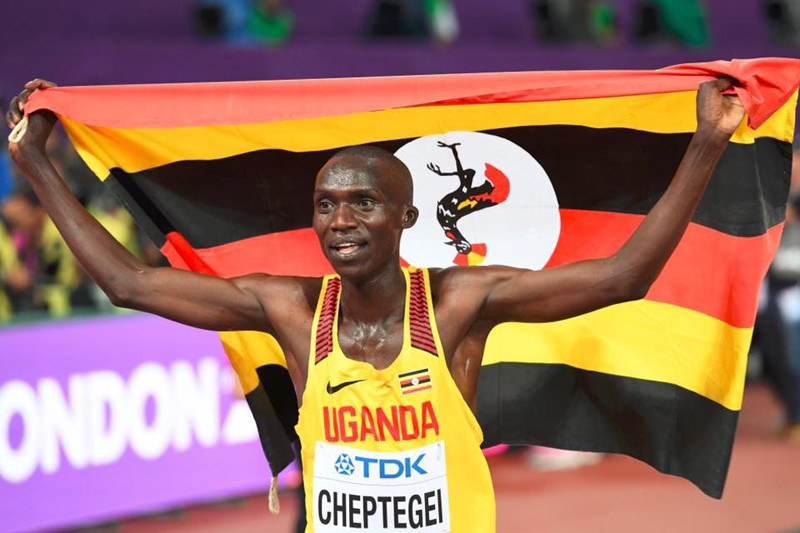
They are joined on the team by 2009 world U20 cross-country bronze medallist Moses Kibet, Stephen Kissa and Abel Chebet.
Juliet Chekwel, who holds the Ugandan records for 10,000m (31:37.99), half marathon (1:09:45) and the marathon (2:23:13), leads the women’s team.
Doreen Chemutai, Doreen Chesang, Rachael Zena Chebet make up the rest of the Ugandan women’s roster.
Ugandan team for Gdynia
Men: Abel Chebet, Joshua Cheptegei, Moses Kibet, Jacob Kiplimo, Stephen Kissa
Women: Juliet Chekwel, Doreen Chemutai, Doreen Chesang, Rachael Zena Chebet
(09/21/20) Views: 84World Athletics
Kenenisa Bekele and his thoughts about Eliud Kipchoge
The coronavirus lockdown has been a bitter-sweet experience to Kenenisa Bekele, the world’s most decorated distance runner of all time.
The 38-year-old superstar from Bekoji in the Ethiopian Rift Valley has experienced the ebb and flow of an elite career, a regular customer on and off the injury list, worst of which was a calf rupture in 2010.

That’s why he brushes aside the fact that the pandemic subjected athletes to training in isolation.
This is a situation that he’s accustomed to, having endured various injuries in his stellar career that forced him to retreat, knock himself into shape before rejoining the fray.
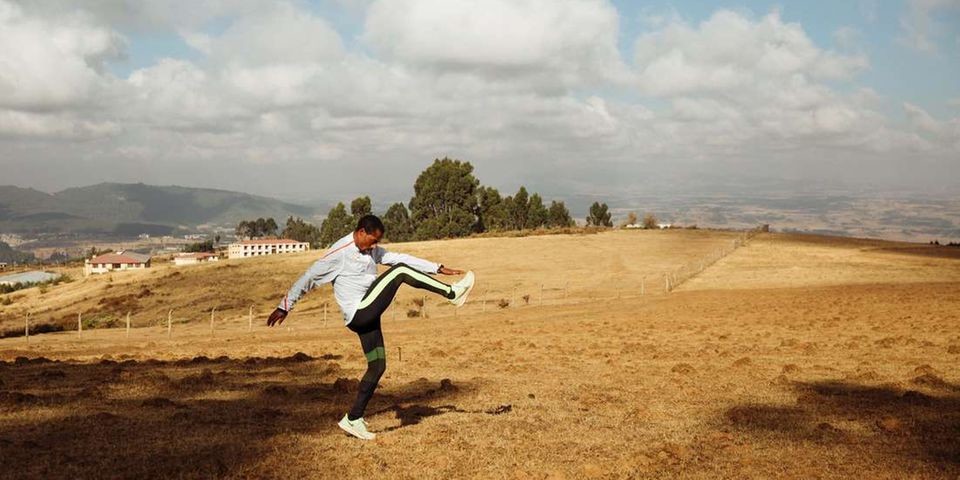
NN Running Team:
“This (training alone during the coronavirus lockdown) was not new to me. I had some bad injuries in my career and during those times I had to train alone to come back to good performance,” he told Nation Sport in an exclusive interview.
Bekele, who owns a resort and private, synthetic track in Sululta on the outskirts of Addis Ababa, along with various other real estate investments, is in the same management as his Kenyan rival Eliud Kipchoge.
Both run in the NN Running Team colours under the Global Sports Management camp, the branchild of former Dutch distance running record holder, Jos Hermens.
Managed out of Nijmegen in The Netherlands, the NN Running Team is also home of Kenya’s half marathon world record holder Geoffrey Kamworor and a galaxy of other wold beaters.
On October 4, Hermens will be in an awkward position when Bekele and Kipchoge clash at the London Marathon, at a time both are enjoying a stellar career on the roads, and are separated by just two seconds, in terms of personal best times over the 42-kilometer distance.
World record:
In 2018, Eliud Kipchoge shattered the world marathon record in winning the Berlin Marathon in Two hours, one minute and 39 seconds.
Just 12 months later, Bekele responded by completing the distance in 2:01:41, on the same Berlin streets, despite struggling with discomfort in the first half of the race.
Bekele’s brilliant second half (negative splits) convinced many that he could, perhaps, upstage Kipchoge.
Their eagerly-awaited duel was plotted for April 26, but the London Marathon was shelved as Covid-19 struck, prompting organizers to postpone the duel to October 4.
A great ambassador:
Now with the new big day just 14 days away, Bekele has nothing but respect for Kipchoge, appreciating the Kenyan’s contribution to athletics.
“I have great respect for Eliud,” he said during the interview from Addis Ababa.
“We have been competitors for a long time. He is a great ambassador for our sport and I respect him a lot.”
The October 4 London Marathon will be an elites-only race with no mass runners or spectators due to precautions over the coronavirus.
The 40th anniversary race will also see the elite races take part on a closed-loop circuit around St James’s Park, with the athletes staying in a hotel outside of London which has been chosen for its 40 acres of grounds where athletes will be able to train during race week.
Bekele says racing against Kipchoge and other top elites on October 4 gives him added motivation.
“It gives me great motivation, to run in one of the greatest marathons in the world against the greatest athletes. I give myself pressure, I want to run my best race.”
“Running world records is not easy and difficult to predict what is possible. But seeing Kipchoge’s sub-two performances, we know anything is possible,” he said.
“I had to adapt my training programme with some more alternative training, like on the bike and gym training to remain fit with my team supporting me as usual,” said Bekele who loves spending time with his family when free.
The shifting of the big race from April to October is the least of his worries.
“I was well prepared for the London Marathon in April but as an athlete you need to be ready and flexible, so I focused on October and went on with my training.
(09/21/20) Views: 73Bernard Rotich
Lydia Njeri Mathathi is among the pace-makers for next month’s London Marathon
First Lady’s Half Marathon champion Lydia Njeri Mathathi is among the pace-makers for next month’s London Marathon.
Yes, you guessed it! She is a sister of the famous distance running star, Martin Irungu Mathathi, bronze medallist at both the 2006 World Cross Country Championships (Fukuoka) and in the 10,000 metres at the 2007 World Championships (Osaka).
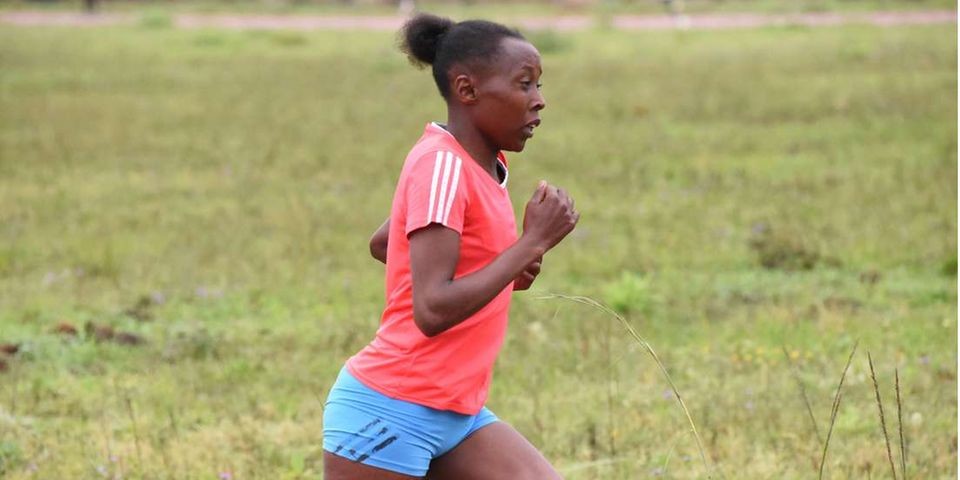
Lydia will be playing “rabbit” in a major race for the second time and has been delegated the responsibility to pace for the second group of athletes.

The time target for this group is two hours and 23 minutes.
Apart from pacing various athletes, Lydia is also an accomplished athlete in her own right, and has competed in various races on the road, catching the eye of race directors.We caught up with her at Kipchoge Keino Stadium in Eldoret, Uasin Gishu County, last week where she was sharpening her skills in a speed work session.
Just like other athletes across the country, Lydia was forced to retreat from serious training when the coronavirus struck forcing the government to ban group training.
She said, that forced her to continue training alone due to the rules from the government but she is happy the country is slowly opening up and she is up to the task ahead.
“It has been a long journey in training because of the virus which sent us back to the drawing board where we missed the whole season of athletics,” said the younger Mathathi.
Lydia bagged victory in First Lady’s Half Marathon in Nairobi (one hour, 12 minutes and three seconds) with Londiani-based Emily Chebet coming in second in1:12:30 and Pacifica Jeptoo closing the podium in 1:12:44.
This was after disappointment from the Paris Half Marathon where they were forced to fly back home after the race was cancelled due to coronavirus.
"We flew all the way to Paris only for the organisers to cancel the race in the last minute due to the coronavirus pandemic which had started spreading across the world. I’m happy because I managed to bag victory in the First Lady’s Half Marathon and since then we have just been training at home,” she said.
“I used to participate in various races in school and this was because my brother was an athlete and I wanted to be like him. I’m happy because my brother has been of great help in my career and I will be going for nothing but the best,” said Lydia, who has a personal best of 67:51 in the half marathon.
(09/18/20) Views: 70Bernard Rotich
Strong European Field for Mattoni Ústà nad Labem Half-Marathon, celebrating its tenth edition on Saturday
This weekend's Mattoni Ústí Half-Marathon in the north of the Czech Republic near the German border will feature a strong European elite field, organizers announced today. The race celebrates its tenth edition on Saturday.
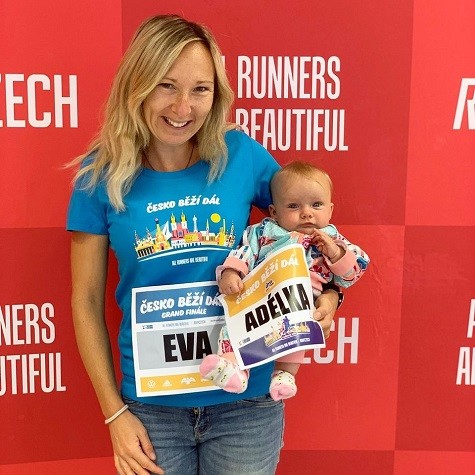
The women's field includes Eva Vrabcová Nývltová, the 2018 European Championships bronze medalist in the marathon, who is coming back to competition after giving birth to a baby girl, Adela, in 2019.
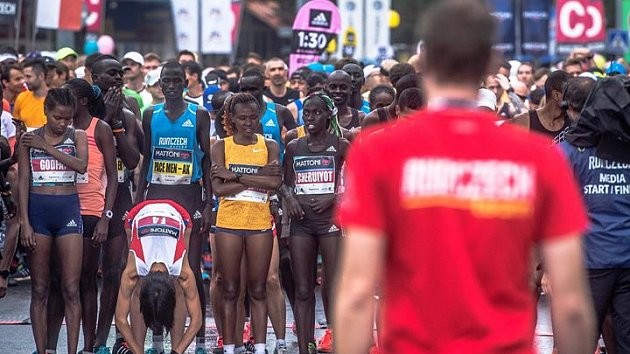
Unlike many road races which were postponed this year, the Mattoni Ústí nad Labem Half-Marathon is being held on its normal date. Last year's race had 2351 finishers, but this year should have fewer finishers due to COVID restrictions. The course records are Men, 59:14, by Kenya's Barselius Kipyego in 2017 and 1:07:17 by Peres Jepchirchir, also from Kenya, in 2015.
The elite start lists are as follows.
MEN -Said El Otmani (ITA) 1:01:31 (Verbania, 2019) Alejandro Jimenez (ESP) 1:03:05 (Valencia, 2019) Jirí Homolác (CZE) 1:03:23 (Prague, 2017) Alberto Sanchez Pinilla (ESP) 1:03:39 (Puerto de Sagunto, 2020) Bohdan-Ivan Horodyskyi (UKR) 1:04:43 (Kovel, 2019) Vít Pavlišta (CZE) 1:05:09 (Prague, 2016) Emmanuel Roudolff-Levisse (FRA) 1:05:22 (Lille, 2019) Robert Míc (CZE) 1:07:23 (Ústí nad Labem, 2017) Azeddine Habz (FRA) debut Jakub Zemaník (CZE) debut Sebastian Hendel (GER) pacemaker for women’s race
WOMEN -Fatma Maraoui (ITA) 1:10:08 (Cremona, 2011) Eva Vrabcová Nývltová (CZE) 1:11:01 (Prague, 2018) Ekaterina Korneenko (BLR) 1:12:45 (Poznan, 2019) Marcela Joglová (CZE) 1:13:46 (Kostenice, 2020) Kristina Hendel (GER) 1:14:02 (Berlín, 2019) Ivana Sekyrová (CZE) 1:14:06 (Pardubice, 2013) Cecilia Mobuchon (FRA) 1:14:16 (Sevilla, 2020) Nuria Lugueros Diaz (ESP) 1:15:11 (Madrid, 2019) Tereza Hrochová (CZE) 1:15:59 (Kostenice, 2020) Barbora Jíšová (CZE) 1:18:51 (Prague, 2018) Tereza Jagošová (CZE) 1:25:08 (Olomouc, 2018)
(09/18/20) Views: 64Epic clash at London Marathon this year, but with lower prize money
Top athletes will earn less in this year's London Marathon as effects of Covid-19 continue to hit the sports world.
Organisers of the October 4 race say the prize money has been cut by nearly half of what was offered last year.
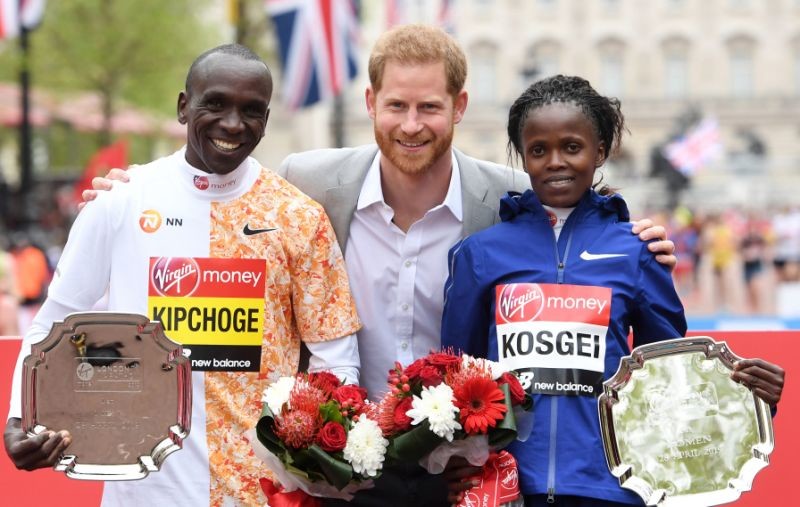
With only 17 days to the 40th edition of the London Marathon, the announcement comes as a shocker for marathoners who are just returning to the sport after months of heavy lockdowns.
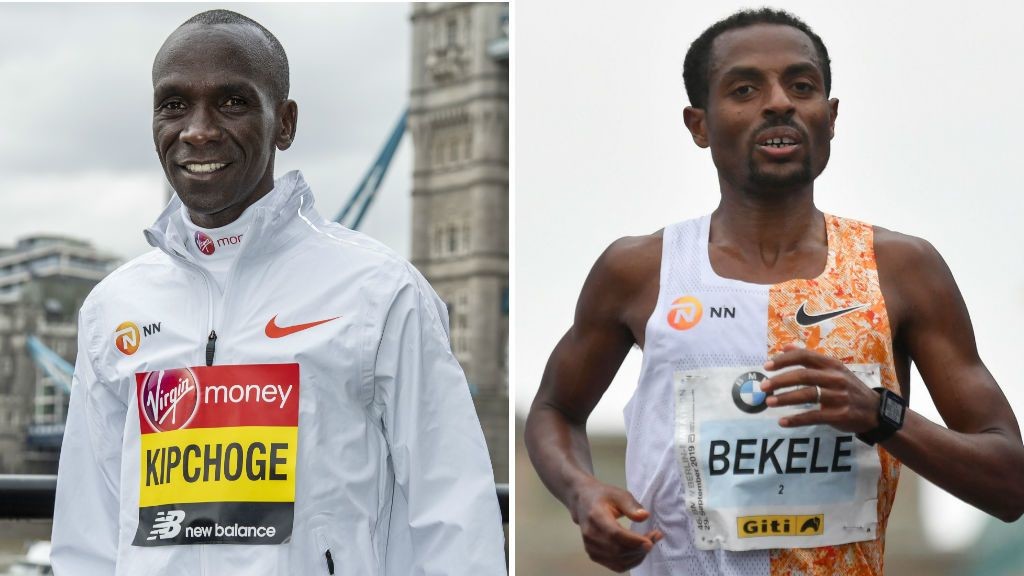
Interestingly, for the first time there will be a separate prize pool for the best performing British athletes for the London clash that will present the scintillating clash between the world’s fastest marathoners - Kenya's Eliud Kipchoge and Ethiopia's Kenenisa Bekele.
The elite men’s race will see one of the most eagerly anticipated clashes in marathon history with Kipchoge going head-to-head with Bekele, the man who came within two seconds of his world record last year in Berlin.
(09/18/20) Views: 61
Stephen Rutto
Runners sponsored by smaller companies might be in a better position than those who are signed by major brands
Earlier this week, the Swiss running shoe company On announced that it was starting an elite training group in Boulder, Colorado, called the On Athletics Club. It’s safe to say that this doesn’t seem like the most auspicious time to invest in professional running. Even though the Diamond League—the world’s premier track and field competition circuit—is scheduled to begin an abridged summer season on Friday, this year has seen an unprecedented number of race cancellations and it’s difficult to predict when the bleeding will stop.
International Olympic Committee President Thomas Bach has already gone on record saying that the Tokyo Games, which have been postponed to summer 2021, will not be delayed a second time. If they can’t be staged next August, the Olympics will be canceled outright, thus depriving track athletes of their quadrennial moment in the sun.
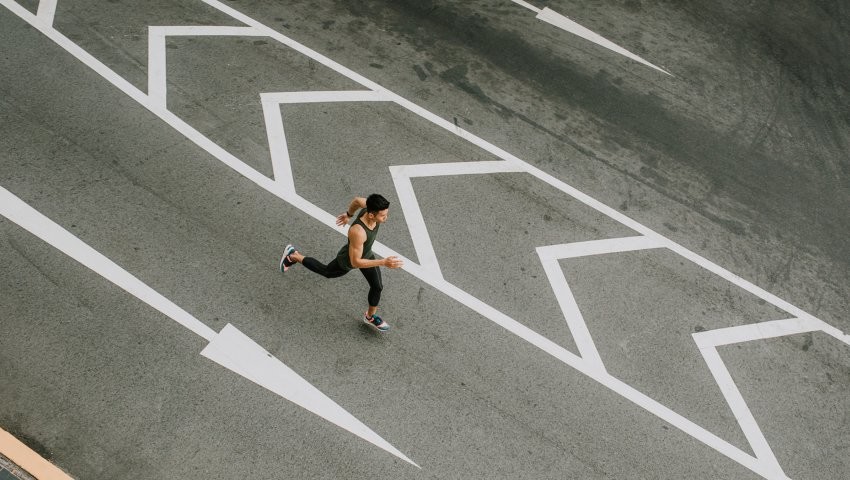
According to Steve DeKoker, On’s Global Sports Marketing Manager, the company has long been looking to develop an elite running team and the Boulder-based group represents the most significant move in that direction to date. For now, the On Athletics Club consists of eight runners, all of whom are in their 20s and were standout NCAA athletes (the University of Colorado’s Joe Klecker and the University of Wisconsin’s Alicia Monson are the headliners).
Recently retired Olympian Dathan Ritzenhein will act as coach. It has been disclosed that these athletes will be signing multi-year deals with no reduction clauses (i.e. performance quotas)—a risky move, perhaps, but one that On might currently be well-positioned to make thanks to a potential pandemic-inspired uptick in recreational running.

“Running is kind of experiencing this second boom,” DeKoker told Letsrun.com. “We’ve got all these folks at home who are struggling with different issues, but running is a viable activity for them. Whereas if you’re Nike, and you’re in 50 different verticals, running might be a positive one, but you’ve got a bunch of other sports that are hemorrhaging right now.”
There has been some evidence to bear this out. Nike has reported a 38 percent decline in total revenue through May 31. More specifically, last week, the market research company NPD published an article noting that prominent brands (Nike, Adidas, Under Armour) had an overall sales decline in athletic footwear in the first half of 2020, while several running-focused shoe companies had fared conspicuously well.
Hoka One One and On, in particular, saw year-over-year sales increases of 75 and over 50 percent, respectively. (An On representative has confirmed this, and added that the brand had recorded its highest ever sales month in June 2020.) Matt Taylor, the co-founder and CEO of the independent running apparel brand Tracksmith, told me that “there’s been a noticeable uptick in people running over the last few months,” and that Tracksmith was “seeing this trend reflected” in its business.
While the running industry will never be entirely insulated from the state of the overall economy, there is some logic to the notion that the sport is well-suited to weather a financial downturn. To use DeKoker’s term, running is a “viable activity” for many people because it is relatively cheap, accessible, and offers both physical and mental health benefits during times of uncertainty.
The most recent running boom occurred during the years immediately following the Great Recession; starting around 2008, there was a continual increase in running event participation, culminating in 2013, when a record 19 million runners took part in U.S. road races.
Of course, from a running perspective, one of the uniquely cruel aspects of the COVID-19 recession is that the pandemic has precluded the staging of most mass participation events. The New York Road Runners, the largest non-profit running events company in the United States, laid off eleven percent of its employees and furloughed an additional 28 percent in July. Hence, any discussion about how the pandemic might end up “benefiting” the running industry in shoe or apparel sales must be weighed against this freeze of running events.
For professional runners, meanwhile, the cancellation of big-ticket races signifies a loss in prospective appearance fees and prize money. Some athletes might also be contractually obligated to run a pre-set number of races, which, needless to say, has not been so easy in 2020. That’s why this has been the summer of intrasquad competitions, in which training partners take part in de facto time trials that have been spruced up just enough to qualify as official meets. While some of these events have yielded impressive performances—most notably Shelby Houlihan, of the Bowerman Track Club, breaking her own American record in the 5,000-meters—there have also been farcical scenarios where world-class athletes phoned it in, presumably so that they can reach their race quotas. (Last week, reigning Olympic 1,500-meter champion Matthew Centrowitz “raced” an 800... and ran 3:08. His personal best in the event is 1:44.)
It’s not a coincidence that the most prominent examples of these sham races have involved Nike athletes. After all, the Oregon-based company sponsors far more runners than any other brand. They have the funds to do it, but casting a wide net might also make it more difficult for Nike to offer elite runners the contractual perks of smaller, running-focused companies like Oiselle, On, and, recently, Tracksmith. For now, reduction clauses still seem to be the norm for the typical Nike track athlete. (A Nike spokesperson told me that the company does not comment on athlete contracts.)
Hawi Keflezighi, an agent whose clients include his brother Meb Keflezighi and recent U.S. Olympic Trials Marathon champion Aliphine Tuliamuk, agreed that this was likely to be the case. “I think Nike deserves credit for all the athletes and events that they sponsor, but at the same time, within that business model, if you have a lot of athletes, you can’t be as flexible as when you only have five or ten athletes on your roster,” Keflezighi, whose brother was a Nike athlete for years before signing with Skechers in 2011, told me. He added that, while it’s typical for companies to reassess which athletes they want to sponsor at the end of an Olympic cycle, the current uncertainty surrounding the fate of the Games, and looming recession, mean that conditions for athletes are even more cutthroat than usual.
“I think the bigger brands definitely have tougher decisions to make, just because they have a bigger investment overall,” Keflezighi says. “The athletes with those brands, especially if they are not medal contenders or in a great position to make the US Olympic team—under this environment, those athletes’ contracts are a little bit more vulnerable. If you have a smaller roster of athletes, you might be able to say, ‘Hey, you know what? Let me give that athlete an extra year or two.”
DeKoker echoed this sentiment. “Obviously, performance is going to be a key element, but it’s not the only element with On,” he says. “I do think that, at some of these other companies, it’s much more of a numbers game and unfortunately some athletes are going to be on the losing end of that.”
What will the “numbers game” look like in a worst case scenario where next year’s Olympics ultimately do get canceled? With any luck, we won’t get to find out.
(09/19/20) Views: 52Outside Online
According to recent statistics, around 165 million 60 kg. (122 lb.) bags of coffee are consumed worldwide annually
That's a lot of coffee – and that doesn't take into consideration all the other forms of caffeine we're taking in: soda, chocolate, energy drinks, tea, and many other niche products.
We all know the cognitive benefits of caffeine, plus its ability to fight off fatigue and tiredness. But did you know that there are extensive athletic benefits as well? Across a wide-ranging mix of sports, and for all manner of athletes: caffeine works.
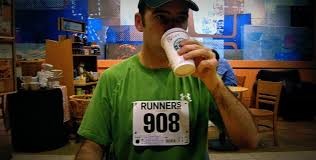
When people hear the word "caffeine," the first thing that comes to mind is its effects on stimulation, attentiveness, and tiredness. And it's true – caffeine and coffee have a wide range of health effects – many related to attention and fatigue.
Caffeine is a natural psychoactive stimulant that stimulates your central nervous system and brain by helping keep you alert and remain active. It's naturally found in leaves, nuts, and some plants' seeds – somewhere around 60 plants have been identified which produce caffeine.
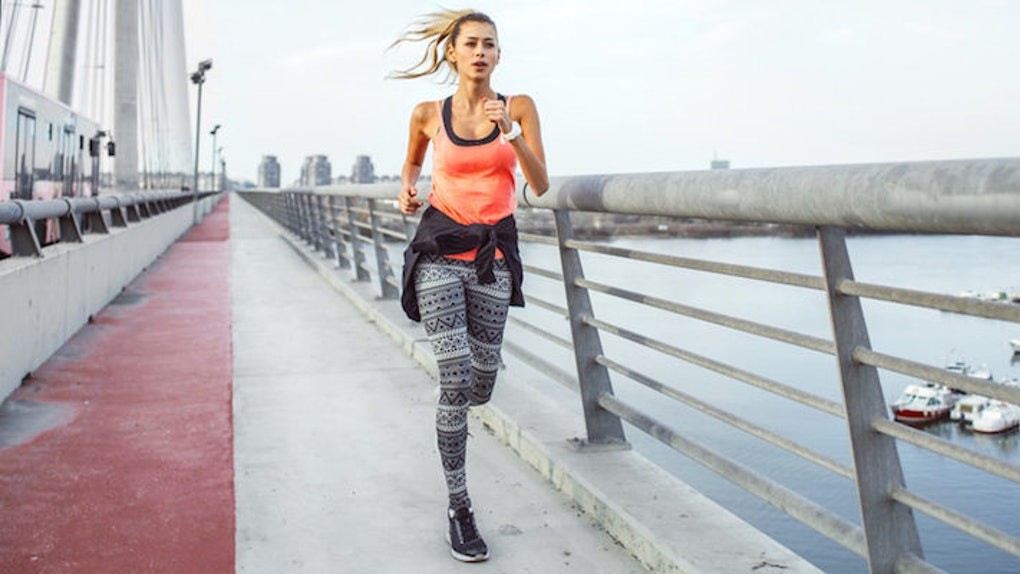
According to a study conducted by a Western Michigan scientist, at least 30 plants (out of ~ 300,000 flowering plants of different species) produce caffeine. Others put the number closer to 30. The reason plants have caffeine isn't known for 100% certain – but it may be as a pollinator attractor or perhaps a defense mechanism against insects.
The caffeine in some plants can poison plant pests and herbivores. This ends up discouraging them from attacking the plant again... if they survive the caffeine intake. Since caffeine is also toxic to the plant's cell, it's stored in individual cell compartments to keep it at distance from other cells.
Plenty of studies have found that drinking caffeine regularly can help improve your mental performance, especially your concentration, alertness, and attention. This is because caffeine suppresses the effects of adenosine, the neurotransmitter associated with sleepiness.
Scientists also discovered that there's a direct relation to the dose of caffeine you consume and your mental performance. There's just more caffeine around then to interfere with adenosine uptake.
For example, higher caffeine doses – up to a point – can aid in improving your cognitive speed, improve accuracy and alertness, and decrease fatigue. Going too high has its downsides, though, which we'll discuss a bit later.
Improving Heart Health
Another positive effect of drinking caffeine is improving heart health. Research studies show that consuming coffee in reasonable doses can aid in decreasing heart failure and strokes.
Caffeine and Exercise: What Does Science Say?
Many times, caffeine is more interesting as a performance-enhancing supplement – beyond staying up late and being more productive, it can help you lift more, jump further, run faster, cut your times, and otherwise make you a better athlete.
Why Might Caffeine Help Exercise Performance?
According to the International Society of Sports Nutrition, caffeine is an effective way of enhancing different types of exercise performance when consumed in moderate amounts. A meta-analysis showed caffeine positively affects muscle strength, aerobic endurance, muscle endurance, exercise speed, and jumping performance.
The results showed that caffeine affects your exercise performance by reducing fatigue, blocking the aforementioned neurotransmitter adenosine, and increasing your alertness and precision.
More relevant for athletes, it also increases the stimulation of your central nervous system, making physical exertion feel like it involves less pain and effort. This helps you become more effective and productive with each workout. Consider lifting, for example – much of your strength comes from CNS adaptation, and caffeine enables you to get the most out of what you can already lift.
For high-intensity exercises like strength sports, swimming, and sprinting, caffeine increases the number of fibers recruited in muscle contractions. This enables you to make forceful – and frequent – movements. Other studies have found that athletes or active adults who consume caffeine before working out have improved concentration.
Studies show that caffeine consumption in coffee or as a supplement taken one hour before exercise can boost endurance. More studies found that the use of coffee could help improve performance in running and cycling.
A 2017 study that involved male runners suggested that the consumption of caffeinated coffee an hour before a 1-mile event enhanced their performance. Their performance increased by 1.9 percent and 1.3 percent compared to runners who took a placebo or decaffeinated coffee.
All these studies prove that consuming coffee before aerobic exercise helps enhance overall performance. And if you're looking to incorporate caffeine into your endurance training, most of these studies looked at a dose of roughly 200 milligrams.
(09/20/20) Views: 51Gerard Paul
2021 Vienna City Marathon moves from April into September
The Vienna City Marathon is the second major international marathon which has been moved from a spring date of 2021 into the second half of the year. The race is now scheduled for 12 September. This spring organizers had to cancel Austria’s biggest one day sporting event due to the corona virus pandemic. Because of the ongoing uncertainties during the pandemic there was too much risk continuing to plan with a race on 18 April 2021, organizers explained. The first major race that was moved from spring into the autumn in 2021 was the London Marathon. The Vienna City Marathon is a World Athletics Gold Label Road Race.
The world is still in a state of upheaval and constant change due to the corona virus pandemic. This especially applies to organizers of major events. That led to the decision to postpone the upcoming Vienna City Marathon from April to 12 September 2021. "In accordance with health experts and those in charge for the City of Vienna, we are convinced that on this date in September we will find an improved overall Covid-19 situation and be able to organize a major marathon in Vienna. We want to hold an event that offers a thrilling experience and inspires the participants and spectators - a race like the one we staged in 2019 or in the years before. Moving it to the second half of 2021 is the more honest answer to the difficult situation and brings more reliability and planning security, also for the participants", reads a statement of the organizers.
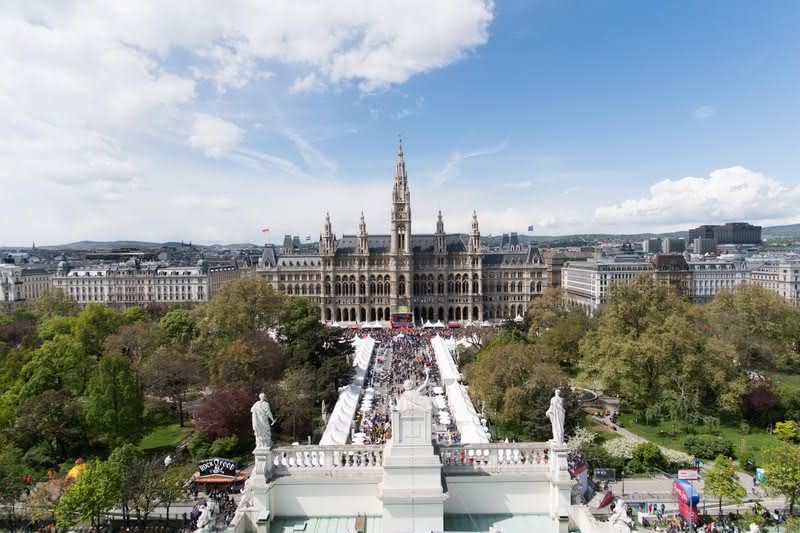
"Our goal is to organize the Vienna City Marathon safely but also with a great atmosphere. However, we cannot carry out the extensive conceptual and preparatory work for the marathon under unknown and constantly changing regulations. We want to organize running events and will do so according to the current rules. For our major event, the Vienna City Marathon, however, moving it to September is the more realistic way," says Vienna City Marathon Race Director Wolfgang Konrad.
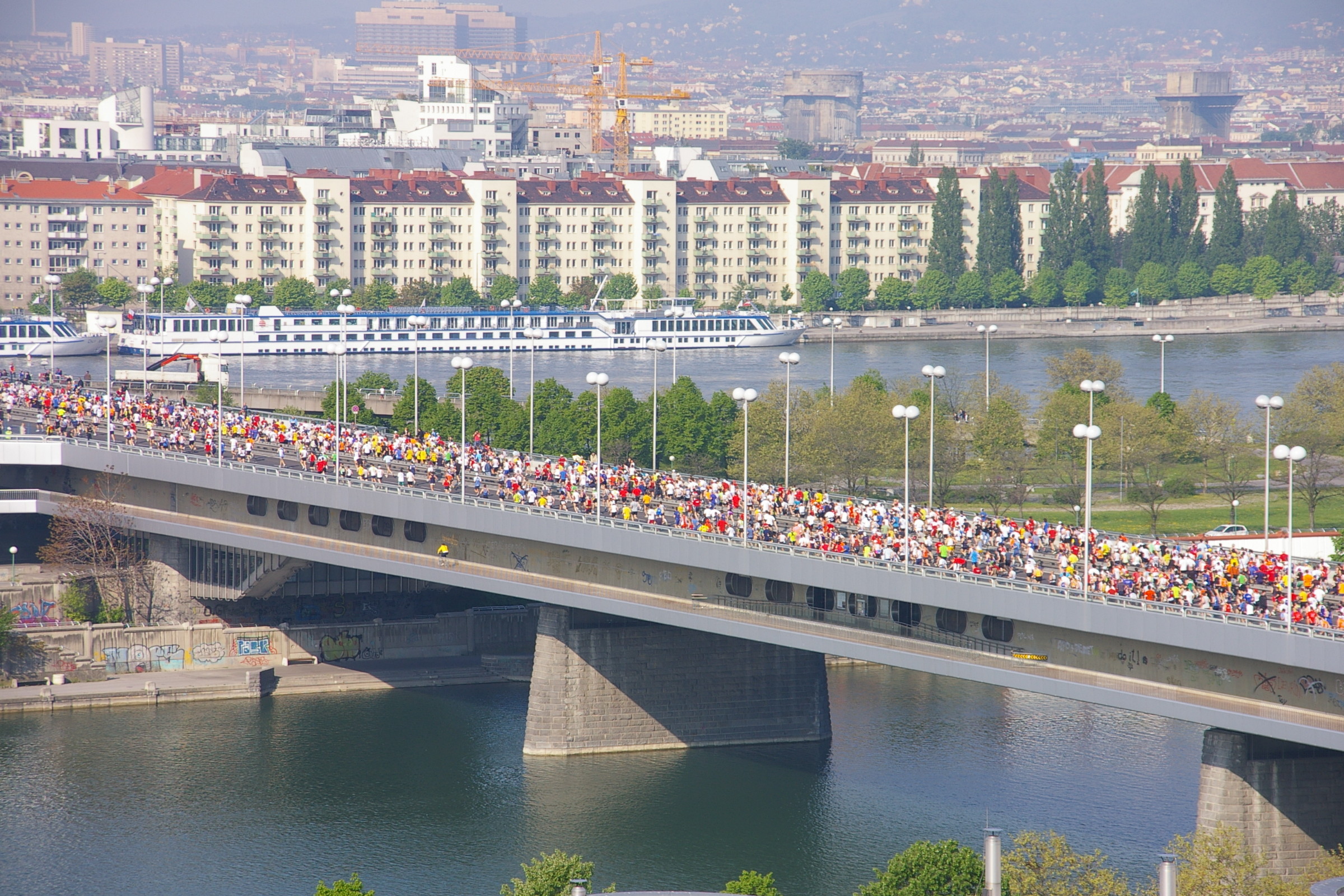
"I am delighted that the Vienna City Marathon 2021 is planned to take place in an attractive and customary manner. The event mobilizes Vienna and the Viennese population. As a tourist magnet with strong economic effects, the event is of great importance beyond sports and health promotion. It is clear that due to the Covid-19 pandemic, events like the Vienna City Marathon have to cope with great challenges. However, in the light of the Covid-19 pandemic, holding the event in September 2021 offers a clear perspective. We hope that the marathon can be held on this new date on the well-known route, which passes numerous tourist attractions of Vienna," says Vienna’s Mayor Michael Ludwig.
The date of the Vienna City Marathon is usually fixed for several years in advance. "It would not have been feasible to wait and hope for the next few months. We could then have found ourselves in a position urgently trying to find a new date in the autumn of the same year. The move required coordination with the City of Vienna, the police, public authorities and other event organizers in order to keep the course through the entire city and the finish area in the Ringstrasse / Rathausplatz area available for the races and for the set-up work," says Gerhard Wehr, Managing Director of the Vienna City Marathon. He thanked the City of Vienna as well as the sponsors and partners for their support and cooperation.
"We hope that the current circumstances and regulations will continue to allow running events to take place. We look forward to every event that can go ahead. This is what our heart beats for, and this is what we will continue to do with all our commitment," Vienna organizers announced. Online entry for the Vienna City Marathon 2021 will start in autumn at: www.vienna-marathon.com
(09/18/20) Views: 48After more than two decades, John Capriotti is stepping down as leader of Nike’s track and field sports marketing group
“John is going into the consulting business,” said Steve Miller, a former Nike executive and the man who hired Capriotti at the company.
The fiery former track coach still worked for the sneaker giant as of Friday. But he is leaning toward a consulting deal that would make Nike one of his clients, according to a second source close to Capriotti.
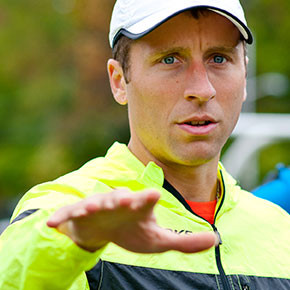
News of the change had the track and field world buzzing on Friday.
“It’s kind of unbelievable,” said a third source, a prominent sports agent. “He’s been in that position for the entire 21 years I’ve been around track and field. He’s been the single most influential person in the sport.”
Neither Capriotti nor Nike could immediately be reached for comment.
Capriotti’s decision comes as Nike is cutting costs and laying off employees. The company lost about $790 million last quarter.
Since Nike brought in John Donahoe as its new CEO and chairman in January, there has been speculation about the ramifications for the company’s sports marketing arm, and for its track and field operations in particular. Donahoe’s athletic background is unknown. But outsiders speculate that the longtime technology executive does not share the passion for track and field of his predecessors Phil Knight and Mark Parker.
Under Capriotti’s watch, Nike solidified its position as the sport’s superpower. It hired more track athletes to endorsement contracts than any other sponsor. It also bankrolled USA Track & Field, the sport’s governing body in this country, signing a sponsorship in 2014 worth more than $400 million.
Nike sponsored three different teams of elite runners, all of them based in Oregon. Its audacious goal was to make American runners once again competitive with the rest of the world.
Capriotti and Nike also helped secure Eugene’s position as one of the world capitals of the sport. He was such a fixture at Hayward Field that his customary spot in the grandstands became known as Cap’s Corner.
The stunning decision to award the 2021 track and field world championships to Eugene came in part because of the enthusiastic support of Knight and Nike. The coronavirus pandemic has delayed the running of those championships in Eugene until 2022.
There was also plenty of controversy. Alberto Salazar was Nike’s superstar coach for the Nike Oregon Project. But Salazar was dogged for years by allegations that he encouraged his athletes to use banned substances. He was banned from the sport for four years “for orchestrating and facilitating prohibited doping conduct.”
Nike sided with Salazar and continued to back him even after the ban, which Salazar is appealing.
(09/19/20) Views: 47Oregon Live


